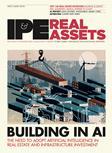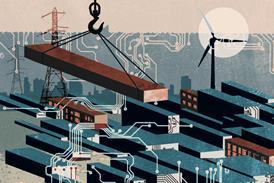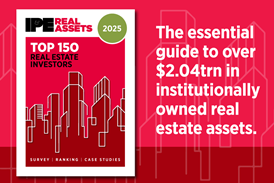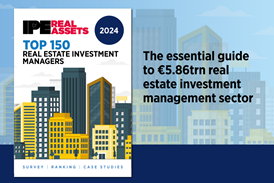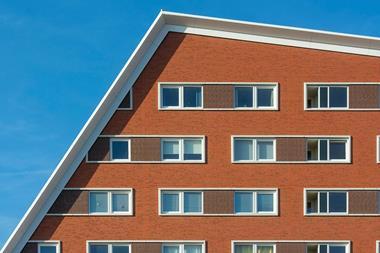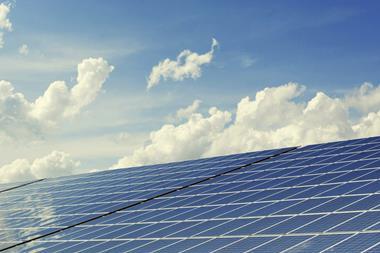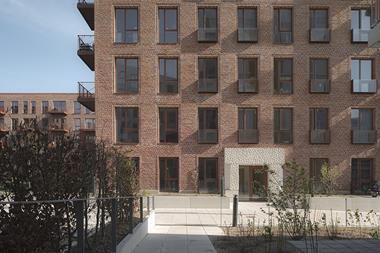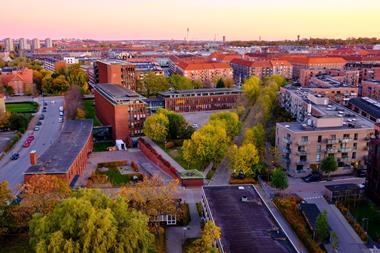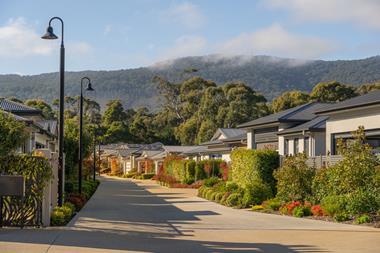Following a period of record performance, buoyed by a post-COVID-19 recovery, European institutional real estate investors are now adjusting their expectations for 2022 amid the worsening conflict in Ukraine.
At this week’s MIPIM convention in Cannes, European real estate investor association INREV announced “record-breaking” results for the asset class during the final three months of 2021.
But a survey of its members suggested that any positivity would need to be tempered by a “shift in investor sentiment” as the industry faces up to “a new phase in the real estate investment market”.
INREV’s quarterly index of real estate assets posted a record high return of 4.85% for Q4 2021, driven primarily by 3.99% capital growth, and a one-year rolling total return of 12.89%.
It was the perfect positive news story for the first full MIPIM in Cannes in three years – for which 20,000 delegates had registered, according to the organisers – but it also coincided with growing concerns about the full implications of the Russian invasion for real estate.
Iryna Pylypchuk, director of research and market information at INREV, said: “The 2021 results reflect a remarkable recovery from the impact of the COVID-19 pandemic, but we should expect the first quarter of 2022 to look quite different.
“The unfolding conflict in Ukraine has an indirect negative impact through a weaker economic outlook and an even greater build-up of inflationary pressures which is most likely to have triggered the change in sentiment.”
INREV found a jump in investors’ assessment of investment risk over a three-month period; the share of respondents that said their assessment of investment risk had increased rose from 42% in December to 67% this month.
Sentiment towards specific markets also changed, and most dramatically in relation to Germany: the country has slipped from joint top in the list of preferred investment destinations to second from bottom; 15% of respondents plan to decrease allocations to the market.
Conversely, sentiment towards the UK remained positive with 21% of respondents intending to increase allocations, while the Netherlands headed into positive territory, with 15% of investors and investment managers planning to increase allocations.
In terms of expected future performance, 38% of investors and investment managers expect real estate performance to be more negative than in the previous quarter, and none expect a more positive performance over the next quarter.
However, allocations to European non-listed real estate looks to be unaffected overall, with 81% of respondents planning to invest more or less the same in the asset class as they did in December 2021 and 14% more confident about increasing their weighting.
ULI/PwC Emerging Trends report and the spectre of inflation
The Urban Land Institute (ULI) and PwC launched a global update to their annual Emerging Trends in Real Estate reports at MIPIM, which also found a dampening of “recent optimism” as the war in Ukraine prompted “fears of further heightened and lasting inflation”.
The optimism noted by the three regional Emerging Trends reports at the end of 2021 is “couched in more caution now”, ULI and PwC said.
The industry had already started to “ratchet back expectations” for 2022, according to the report, after the record investment of last year, but the Ukraine crisis has ushered in a “new wave of apprehension”.
Lisette van Doorn, CEO of ULI Europe, said: “Having already faced a challenging two years, the real estate industry is up for more uncertainty, and not just for the short term.
”The industry is once again facing an economic slowdown while struggling to come to terms with long-term structural trends reinforced or accelerated by the pandemic and now also Russia’s invasion of Ukraine.”
Gareth Lewis, director of PwC Real Estate, said: “Coming out of the pandemic we were seeing generally high levels of confidence in the outlook for real estate investors, driven primarily by the availability of capital looking for yield. But along similar lines to previous years, ever present in the background are concerns around the lingering effects of the pandemic, the endurance of the extended real estate cycle and the impacts of the structural changes hitting the sector.
“The Ukraine crisis, however, has created a new and more sharply focused cause for immediate concern particularly around rising inflation and interest rates – giving rise to stresses that the real estate world has not had to grapple with in earnest for decades.”
To read the latest edition of the latest 91��ý���� magazine click here.


